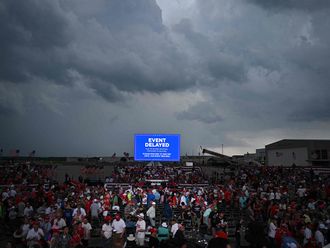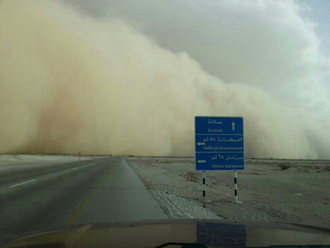The collapse of a Bangladesh building that killed at least 175 people Wednesday is prompting renewed calls for retailers and clothing companies to ensure the safety of workers in the Asian nation.
Loblaw Cos.’ Joe Fresh and Associated British Foods Plc’s Primark, which yesterday said that their suppliers made garments at the collapsed factory, both vowed to help improve working conditions in Bangladesh.
The disaster is another black mark on Bangladesh’s industrial safety record, which made headlines after a fire at a plant producing garments for companies including Wal-Mart Stores Inc that killed at least 100 people in November. More than 700 garment workers have died since 2005 in Bangladesh, according to the International Labour Rights Forum, a Washington-based advocacy group.
“Labour rights groups around the world have been asking, indeed imploring, major retailers to address the grievous safety hazards in their Bangladesh factories and the response is always the same: vague promises and public relations dodges, while the pile of corpses grows ever higher,” Scott Nova, executive director of the Washington-based Worker Rights Consortium, said yesterday in a statement.
Joe Fresh, the clothing brand owned by Brampton, Ontario- based Loblaw, had a “small number” of items produced at the complex, Julija Hunter, a spokeswoman, said in an e-mailed statement.
Regular Audits
The company is “saddened” by the tragedy and will work with its vendor to see how it can help, she said. Loblaw has standards for suppliers to make sure that products are produced in a socially responsible manner and conducts regular audits to ensure compliance, Hunter said.
“We hope to hear more from the authorities about the status of this situation and we are committed to supporting them,” she said.
One of Primark’s suppliers occupied the building’s second floor, the company said in a statement. The budget fashion chain owned by London-based Associated British Foods said it was “shocked and saddened” by the accident and has worked with non-governmental organizations to help improve factory standards in Bangladesh.
Wal-Mart, the world’s largest retailer, is investigating its supply chain to see if a factory in the building was producing for the company, Kevin Gardner, a spokesman for the Bentonville, Arkansas-based retailer, said yesterday in an e- mailed statement.
“We are sorry to learn of this tragic event,” Gardner said. “We remain committed and are actively engaged in promoting stronger safety measures, and that work continues.”
The number of deaths rose to 153 today, Mohammad Asaduzzaman, who’s in charge of Savar Model Police Station, said in an interview from the scene. Officers have handed over 92 bodies to relatives, according to Aminur Rahman, a senior police officer. The remaining 46 bodies with bruises and cuts on their faces and bodies are laid out in the corridor of a school building.
The accident at the eight-story building injured about 800 people working in the plants, the Bdnews24.com website reported without citing anyone. As many as 6,000 people were employed in the facilities housed in the building 24 kilometres northwest of the capital Dhaka, the news website reported. A few shops and a bank also had an office in the area, Health Minister A.F.M. Ruhal Haque said in a briefing yesterday.
“It will take a lot of time to get a full picture of the devastation,” Nilufa Yasmin, a duty officer at the Bangladesh Fire Service and Civil Defence, said in a phone interview. “The top five floors of the building collapsed on top of each other, trapping many inside.”
Mangled Concrete
Rescue operations continued through the night at the disaster site surrounded by hundreds of onlookers. Families of the workers were seen wailing for their loved ones while the others were in frantic search for them from hospital to hospital. Injured workers were being carried on stretchers into a crowded emergency room at a nearby hospital.
Rescuers struggled to help free people from the mangled pieces of concrete, rods and bricks. The government has deployed the army, the elite Rapid Action Battalion and police to help fire officials in the rescue effort.
Surging wages and inflation in China, the largest apparel supplier, have prompted retailers such as Wal-Mart and Sears Holdings Corp to shift production to Bangladesh. In response, an $18 billion manufacturing industry has sprung up, marred by factories operated in buildings with poor electrical wiring, an insufficient number of exits and little fire-fighting equipment.
The collapsed building had developed cracks the previous day, prompting BRAC Bank Ltd. to order its employees to vacate the premises, said Zeeshan Kingshuk Huq, a spokesman.
“We evacuated our staff yesterday,” Huq said. “Other commercial units did not do the same.”
Safety Standards
About half of the Bangladesh’s garment factories don’t meet legally required work safety standards, and those that have improved working conditions have done so under pressure from Western apparel makers, said Kalpona Akter, executive director of the Bangladesh Center for Worker Solidarity, a non- governmental organization founded by two former garment child workers to promote safer factories.
Bangladesh’s labour law requires safety measures such as fire extinguishers and easily accessible exits at factories.
Workers-rights advocates are petitioning companies to sign a contractually enforceable memorandum that would require them to pay Bangladesh factories enough to cover costs of safety improvements.
So far, PVH Corp, owner of the Tommy Hilfiger brand, and German retailer Tchibo are the only ones to sign the agreement, which also would require companies to provide accurate and regularly updated lists of their approved suppliers and subcontractors in Bangladesh. It won’t take effect until four major retailers sign on.
“These accidents are a huge reason why we’ve created the agreement,” Akter said. “It’s not just about fires, it’s about all factory conditions. This building has collapsed. There are many more buildings waiting to collapse.”
Textiles contribute more than 10 percent of Bangladesh’s gross domestic product and about 80 percent of the nation’s exports, mainly to the U.S. and the EU, according to the manufacturers’ association.
Prime Minister Sheikh Hasina said in a statement that she was shocked at the tragedy. Bangladesh will observe a day of mourning tomorrow, Cabinet Secretary Mohammad Musharraf Hossain Bhuiyan told reporters in Dhaka.
-












